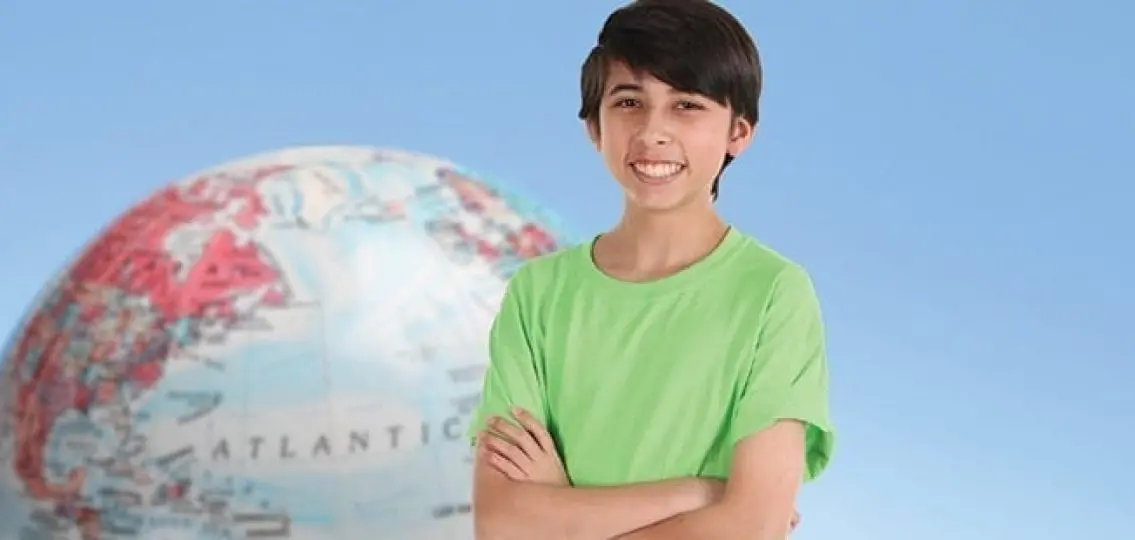When I think about the last 12 months of my middle school daughter’s life, it’s hard not to get overwhelmed with what she’s had to deal with. Everything from typical middle school angst to the events happening in our world. COVID closings, social isolation, racial justice, LGBTQ rights, environmental concerns.

It’s overwhelming for adults to process it all—let alone a 12-year-old. How do parents help guide our kids through these turbulent times?
From Spirit Days to Student Activism

“This year has been different for everyone with the issues the pandemic imposed. Because of everything that had happened—movements that were happening for social justice and change—we wanted to highlight what students could do. We wanted to educate ourselves,” she says.
Pareek, along with her fellow student council members, developed Awareness Sessions—online gatherings each Wednesday hosted by student council and open to every middle schooler in their district. Each month features a different theme: LGBTQ Issues, Women Empowerment, Environmental Awareness, Stress Management, Social Justice.
| [adrotate banner=”212″] |
At the beginning of the school year, the student council reached out to students to vote on topics. Then the student council members divided and conquered to make things happen. Often, these student activists spent dozens of hours a week scheduling presenters, marketing the events to students, and planning in general.
“All of these topics are worth working for.”
Says sixth grade student council representative Asher Hardis, “We are a diverse school, growing up in an inclusive place where everyone knows about everyone else’s culture. Being in a place where you can be who you are is important to us.”
Middle Schoolers as Natural Activists
The sessions last an hour each Wednesday and often include guest speakers. For example, one session in March included an environmental scientist, CEO of a major corporation, a medical student, and a college professor. Another week featured a Rhodes Scholar.
But don’t look for any parent or teacher coordinators. The 12, 13, and 14-year-old students organize it all.
“They came up with the idea. They do everything. Mr. Holman and I are just on the ship,” says teacher JC Lenk, who advises the group of student activists alongside teacher Garth Holman.
“The things they’re hearing are not what we as teachers could normally provide in a classroom. It’s the content students need but schools can’t always provide,” says Holman. “They totally rewrote what student council could do. It’s been inspiring to see this type of positive change come from adversity.”
The students did have to secure school approval for their idea, which they say was encouraged from the top down. “Everyone has been supportive,” says seventh grader and student council Vice President Anahitaa Malhotra. “It’s really inspiring to see our classmates come with open minds. Teachers have given students extra credit for attending certain sessions. It’s been great.”
As the mom of a middle schooler, I was in awe of what these young tweens and teens could do.
But perhaps we shouldn’t be surprised by their activism.
“Middle schoolers are natural activists,” explains Phyllis Fagell, school counselor and author of the book Middle School Matters. “Contrary to conventional wisdom, they’re extremely empathetic, highly attuned to injustice and unfairness, and wired to seek independence and exercise agency. When you match these traits to a child’s passions and interests, they can accomplish anything—from getting a sexist dress code overturned to raising money for an animal shelter. And it’s win-win—the middle schoolers not only make a positive difference in the world, they see themselves as good people and changemakers.”

The students definitely take student activism to heart. “We learn history in school but often times it can feel like it’s not reflective of current events. By having these discussions, we drive perseverance. We see that history is ongoing and we can be a part of it,” Pareek says.




